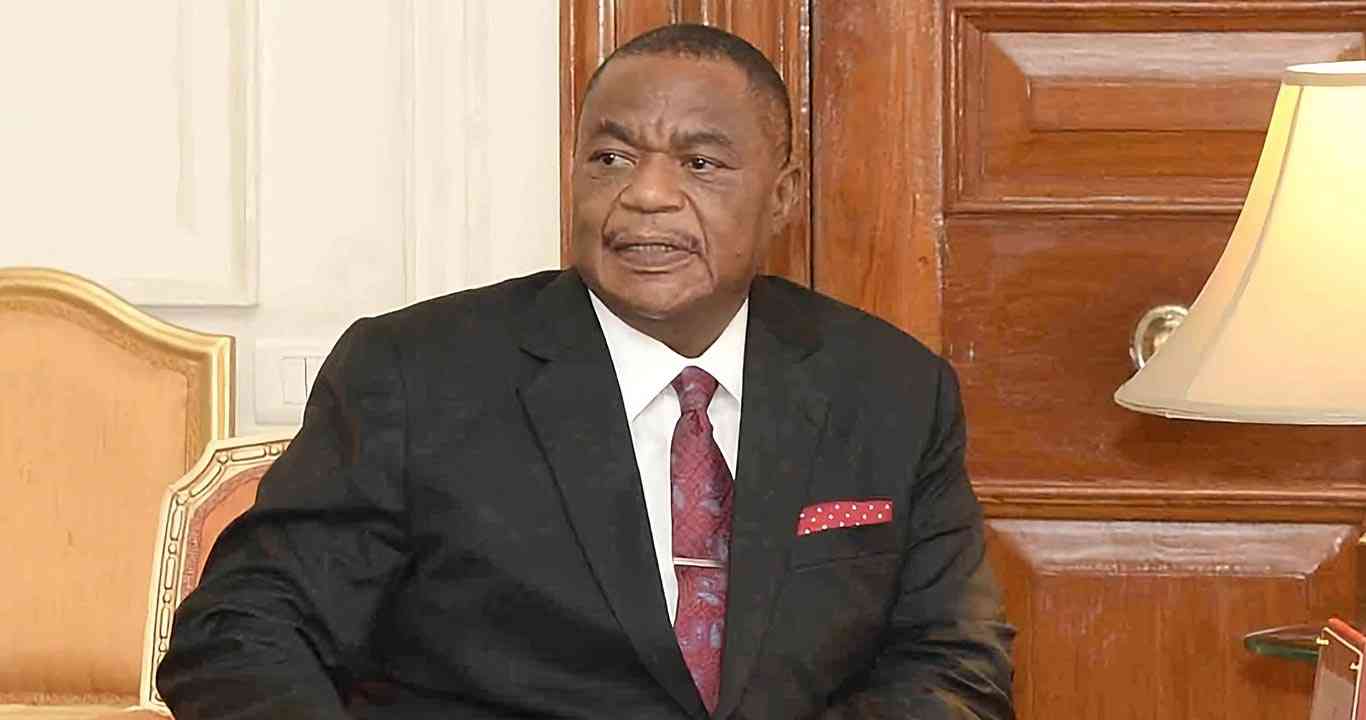
Amid weak opposition, disorganised civil society and shrinking space for dissent, Vice President Constantino Chiwenga’s public opposition to plans to extend the president’s term in office is giving hope to those against the move. But analysts say it will require more than just one force to stop it. As members of Zimbabwe’s ruling Zanu PF party push for an extension of the president’s term, opponents of the plan are pinning their hopes on Chiwenga to launch a campaign to stop President Emmerson Mnangagwa from hanging onto power.
Analysts say that though Chiwenga is getting the backing of influential war veterans, just like Mnangagwa did in 2017, he needs different actors to oppose the president’s pro-term extension campaigners, known as the 2030 Movement. Chiwenga is a prominent figure opposed to the movement. He has denounced corruption and refused to chant slogans demanding the extension of Mnangagwa’s term beyond 2030.
Why young Zimbabweans want constitutional reforms on presidential term limits
This comes at a time when civic space is closed, forcing most civil society groups to operate in darkness. Meanwhile, the State has decimated the main opposition Citizens Coalition for Change (CCC). Opposition leader Nelson Chamisa has yet to launch a political comeback since January 2024, when he resigned as the leader of CCC, citing infiltration by the State.
‘Corruption must end’
Speaking at the Heroes Acre in the capital Harare recently, Chiwenga denounced corruption, particularly by rich individuals known as mbingas in Shona, whom he accused of looting the country’s resources at the expense of the masses.
“Zimbabwe belongs to all of us. Corruption must end,” he said on 27 January.
Mnangagwa has surrounded himself with controversial businessmen like Wicknell Chivayo, who is benefitting from government tenders. Chivayo was investigated last year by the Zimbabwe Anti-Corruption Commission over a $100m Zimbabwe Electoral Commission deal to supply election material for the 2023 general election. According to the investigation, invoices were inflated by 30,000%
- Big send-off for Cont Mhlanga
- Chamisa party defiant after ban
- Massive ZRP vehicle theft scam exposed
- NoViolet Bulawayo’s new novel is an instant Zimbabwean classic
Keep Reading
This is not the first time that Chiwenga, a former military general who played a key role in the ouster of President Robert Mugabe in a military coup in November 2017, has denounced corruption. On 22 January, he said corruption is threatening the ideals of the liberation struggle while addressing mourners at the burial of three heroes at the national shrine.
Admire Mare, the head of the communication and media studies department at the University of Johannesburg, says some people feel Chiwenga can be a buffer between Mnangagwa’s faction and ordinary people but many social forces are finding each other.
“It is more than personalities. Its various social forces,” he tells The Africa Report. “Given that the constitution is on the line there is going to be a broad-based alliance of factions within Zanu PF, opposition parties and civil society that will push back against Agenda 2030.”
Reconfiguration of political forces
Mare believes Chamisa will come back and slowly emerge as one of the critics of the 2030 Agenda and that some elements of the Mugabe loyalists known as Generation 40 or simply G40 will also oppose plans to extend Mnangagwa’s term.
“We are witnessing a reconfiguration of political forces,” he says .Harare-based political analyst Kudakwashe Munemo warns that Chiwenga alone may not stop Agenda 2030, arguing “only a mass movement of citizens of Zimbabwe are capable of ensuring the constitution is not amended for a third term of office, especially given the poor social services delivery, an ailing economy and militarisation of state institutions”.
Zimbabwe belongs to all of us. Corruption must end
In mid-January, churches under the Zimbabwe Heads of Christian Denominations (ZHOCD) encouraged Mnangagwa to adhere to the constitutional term limits.Chiwenga is also one of the few Zanu PF leaders who is publicly against the ruling party’s plans to remove term limits from the Constitution.
Is history repeating itself?
Chiwenga’s attacks on corrupt businessmen come after war veterans led by Zanu PF central committee member Blessed Runesu Geza called for Mnangagwa to step down, accusing him of nepotism, corruption and failure to turn around the economy.The war veterans are against Mnangagwa allies’ plans to remove term limits.During Mugabe’s presidency, the war veterans, led by Victor Matemadanda and Christopher Mutsvangwa were against him in the lead-up to the military coup in November 2017.
Mare says the war veterans have always been the front and centre of Zanu PF factional battles.
“Last time it was Matemadanda who was vocal against Mugabe. This time there is Blessing Geza, Knox Chitiyo and Clive Malunga. History is repeating itself,” he says.
Vivid Gwede, a political analyst, says war veterans have always given a good indication of the political dynamics in Zanu PF.“They will give the anti-2030 movement a mobilisation base. This is a boost to Chiwenga. Their sentiments appear to be backed by and to be backing a political faction,” he says. Backing from war veterans is essential to Chiwenga when his power base is fading. Most of his loyalists who were military generals have died, while some retired or were given diplomatic jobs abroad .But Munemo says Chiwenga’s powerbase may not be fading.
“War vets are key but may not be a deciding factor on their own given the militarisation of the state which gives the military a deciding stake,” he says.
“Chiwenga is a man who was at the helm of the military structure for many years and may have planted seeds in addition to his relationship with China.”










